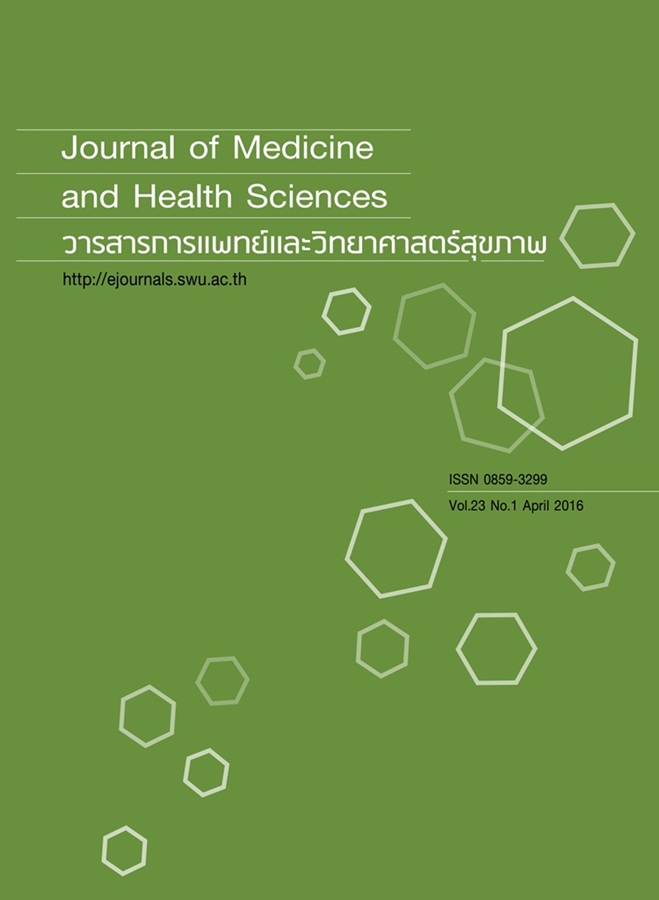Antihypertensive agent at bedtime in patients with resistant hypertension
Keywords:
โรคความดันโลหิตสูงที่ดื้อต่อการรักษา, การให้ยาลดความดันโลหิตก่อนนอน, ภาวะหลับลึก, resistant hypertension, antihypertensive agent at bedtime, non-dipperAbstract
Resistant hypertensions has a high prevalence in hypertensive patients who remain blood pressure above goal in spite of the concurrent use of 3 antihypertensive agents of different classes. Patients with resistant hypertension are at the greater risk of cardiovascular events, especially, non-dipper pattern. Concordantly, accumulating evidences showed that taking at least one antihypertensive agent at bedtime in patients with resistant hypertension diminished bedtime blood pressure; The prevalence of non-dipper and risk of cardiovascular events are better than taking all medications on awakening. However, clinical application of chronotherapy should be carefully considered for various factors including types of antihypertensive drugs, patients with comorbidities, adherence and individual variation. Further investigation, especially large randomized controlled trials, is needed to evaluate the definitive impact of dosing antihypertensives at bedtime in resistant hypertension.
การให้ยาลดความดันโลหิตก่อนนอน ในผู้ป่วยความดันโลหิตสูงที่ดื้อต่อการรักษา
โรคความดันโลหิตสูงที่ดื้อต่อการรักษา พบได้บ่อยในผู้ป่วยความดันโลหิตสูงที่ใช้ยาลดระดับความดันโลหิต ≥ 3 ชนิดแล้วไม่สามารถควบคุมระดับความดันโลหิตได้ โดยผู้ป่วยกลุ่มนี้มีความเสี่ยงสูงในการเกิดโรคหัวใจและหลอดเลือดเพิ่มขึ้น โดยเฉพาะผู้ป่วยที่มีภาวะ non-dipper ร่วมด้วย จากการศึกษาโดยการให้ยาลดความดันโลหิตอย่างน้อย 1 ชนิดก่อนนอน ในผู้ป่วยความดันโลหิตสูงที่ดื้อต่อการรักษา พบว่าสามารถลดความดันโลหิตช่วงนอนหลับ ลดภาวะการนอนหลับลึก ลดความเสี่ยงต่อการเกิดโรคหัวใจและหลอดเลือดได้ดีกว่าการให้ยาลดความดันโลหิตทุกชนิดในตอนเช้า อย่างไรก็ตาม การประยุกต์ใช้ในทางคลินิก ควรทำด้วยความระมัดระวัง โดยพิจารณาปัจจัยอื่นที่เกี่ยวข้อง เช่น ชนิดของยาลดความดันโลหิต ที่ได้รับ โรคร่วมและยาอื่นที่ได้รับร่วมด้วย ความร่วมมือในการใช้ยา รวมทั้งปัจจัยส่วนบุคคลในผู้ป่วยแต่ละราย ทั้งนี้ควรมีการ ศึกษาเพิ่มเติมแบบ randomized controlled trials ในผู้ป่วยความดันโลหิตสูงที่ดื้อต่อการรักษาในประชากรกลุ่มใหญ่ขึ้น



